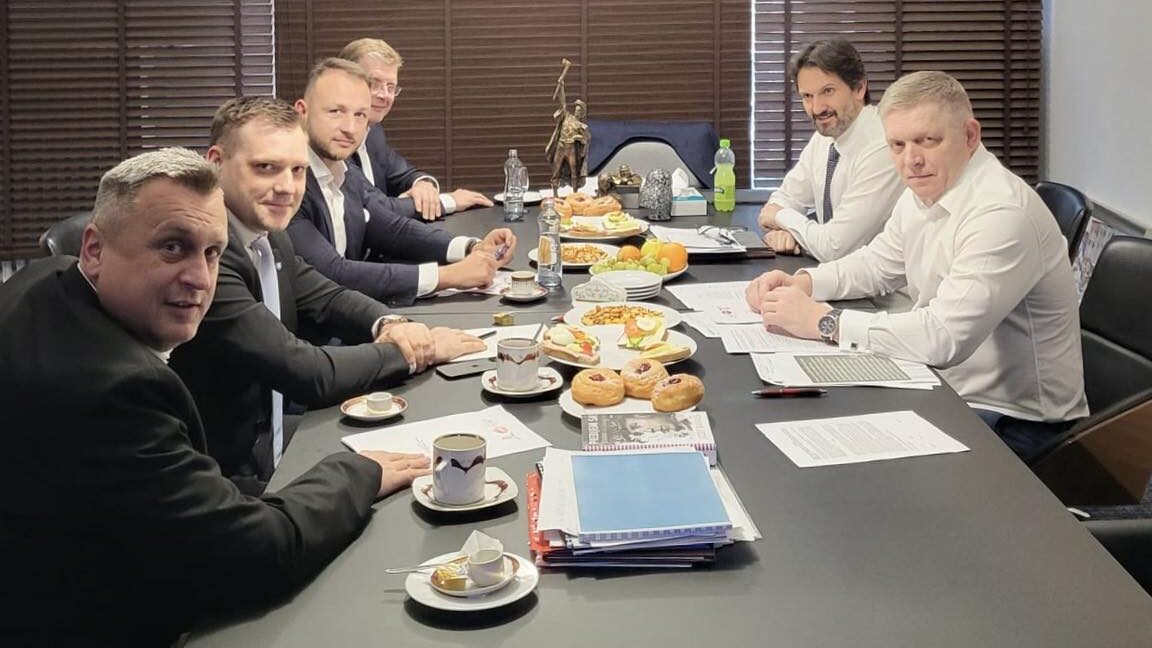
PM Robert Fico (R) and representatives of the government parties Smer-SSD, Hlas-SD and SNS.
Photo: Robert Fico on Facebook, 19 February 2025
Left without a parliamentary majority, Slovakian sovereignist prime minister Robert Fico has taken the first step to manage the crisis surrounding his government, prompted by internal squabbles within its two junior coalition parties.
On Wednesday, February 19th, the PM announced a government reshuffle: his party, the left-wing nationalist Smer, will take control of two ministries that have, to date, been under the control of his junior partners, the social democrat Hlas and the right-wing nationalist SNS. The two ministries—one overseeing investments and regional development, the other tourism and sports—are likely to eventually be assigned to MPs who have parted ways with Hlas and SNS.
In recent months, three lawmakers left SNS, and four Hlas, decreasing the government’s number of MPs from 79 to 72 in the 150-seat parliament. The MPs leaving their parties did not join the opposition but have demanded posts in the government, parliament, and state institutions in exchange for their loyalty.
Following a meeting with party leaders on Wednesday, where the government reshuffle was agreed upon, Fico said
Smer will use this political influence to stabilise the ruling coalition and regain its parliamentary majority.
The leader of Hlas, Matúš Šutaj Eštok, said it is important to avoid early elections. Referring to the Europhile liberal-centre-right opposition parties, he stressed that the continuation of the government crisis would “open the door to the return to power of the destructive and anti-social right-wing political entities.”
Opposition leader Michal Šimečka, leader of the Progressive Slovakia party, believes the only solution is to hold snap elections.
The opposition has been supporting protests against the government in recent months, accusing Fico of re-orientating the country’s foreign policy towards Moscow. The prime minister has rejected the attacks, insisting that Slovakia is embedded in the structures of the EU and NATO, but also wants to have a pragmatic relationship with all the other global powers.
Fico has been harshly criticised by the EU liberal elites for pursuing a sovereignist, eurosceptic, anti-migration, and anti-war policy—and has been threatened with the withholding of EU funds to Slovakia.
There is nothing to indicate that Slovakians are disillusioned with the current government that came into power one-and-a-half years ago. The support of the largest parties has hardly changed since the election, with Smer and its main rival Progressive Slovakia both polling at 22%.
